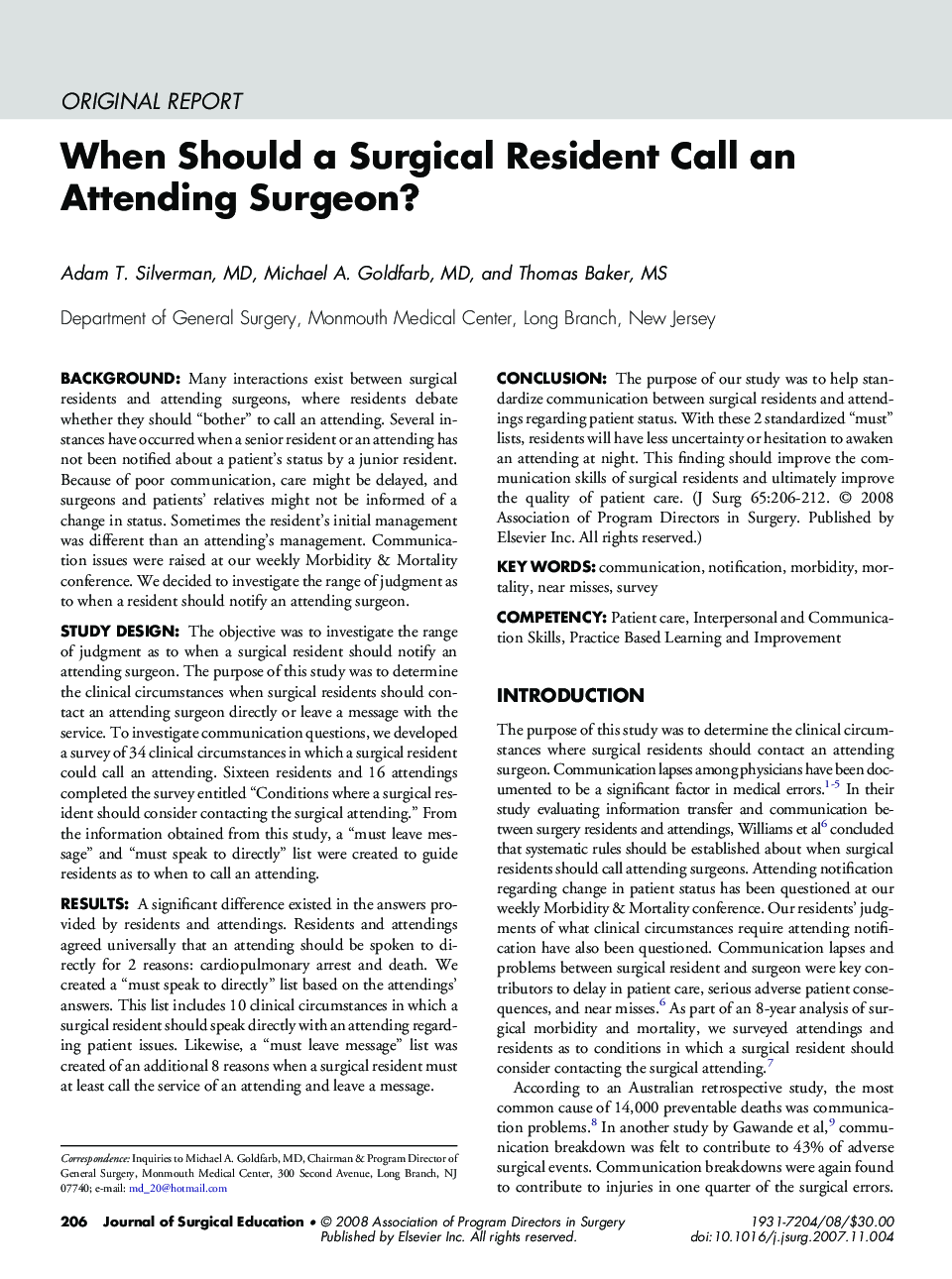| کد مقاله | کد نشریه | سال انتشار | مقاله انگلیسی | نسخه تمام متن |
|---|---|---|---|---|
| 4298932 | 1288375 | 2008 | 7 صفحه PDF | دانلود رایگان |

BackgroundMany interactions exist between surgical residents and attending surgeons, where residents debate whether they should “bother” to call an attending. Several instances have occurred when a senior resident or an attending has not been notified about a patient's status by a junior resident. Because of poor communication, care might be delayed, and surgeons and patients' relatives might not be informed of a change in status. Sometimes the resident's initial management was different than an attending's management. Communication issues were raised at our weekly Morbidity & Mortality conference. We decided to investigate the range of judgment as to when a resident should notify an attending surgeon.Study DesignThe objective was to investigate the range of judgment as to when a surgical resident should notify an attending surgeon. The purpose of this study was to determine the clinical circumstances when surgical residents should contact an attending surgeon directly or leave a message with the service. To investigate communication questions, we developed a survey of 34 clinical circumstances in which a surgical resident could call an attending. Sixteen residents and 16 attendings completed the survey entitled “Conditions where a surgical resident should consider contacting the surgical attending.” From the information obtained from this study, a “must leave message” and “must speak to directly” list were created to guide residents as to when to call an attending.ResultsA significant difference existed in the answers provided by residents and attendings. Residents and attendings agreed universally that an attending should be spoken to directly for 2 reasons: cardiopulmonary arrest and death. We created a “must speak to directly” list based on the attendings' answers. This list includes 10 clinical circumstances in which a surgical resident should speak directly with an attending regarding patient issues. Likewise, a “must leave message” list was created of an additional 8 reasons when a surgical resident must at least call the service of an attending and leave a message.ConclusionThe purpose of our study was to help standardize communication between surgical residents and attendings regarding patient status. With these 2 standardized “must” lists, residents will have less uncertainty or hesitation to awaken an attending at night. This finding should improve the communication skills of surgical residents and ultimately improve the quality of patient care.
Journal: Journal of Surgical Education - Volume 65, Issue 3, May–June 2008, Pages 206–212